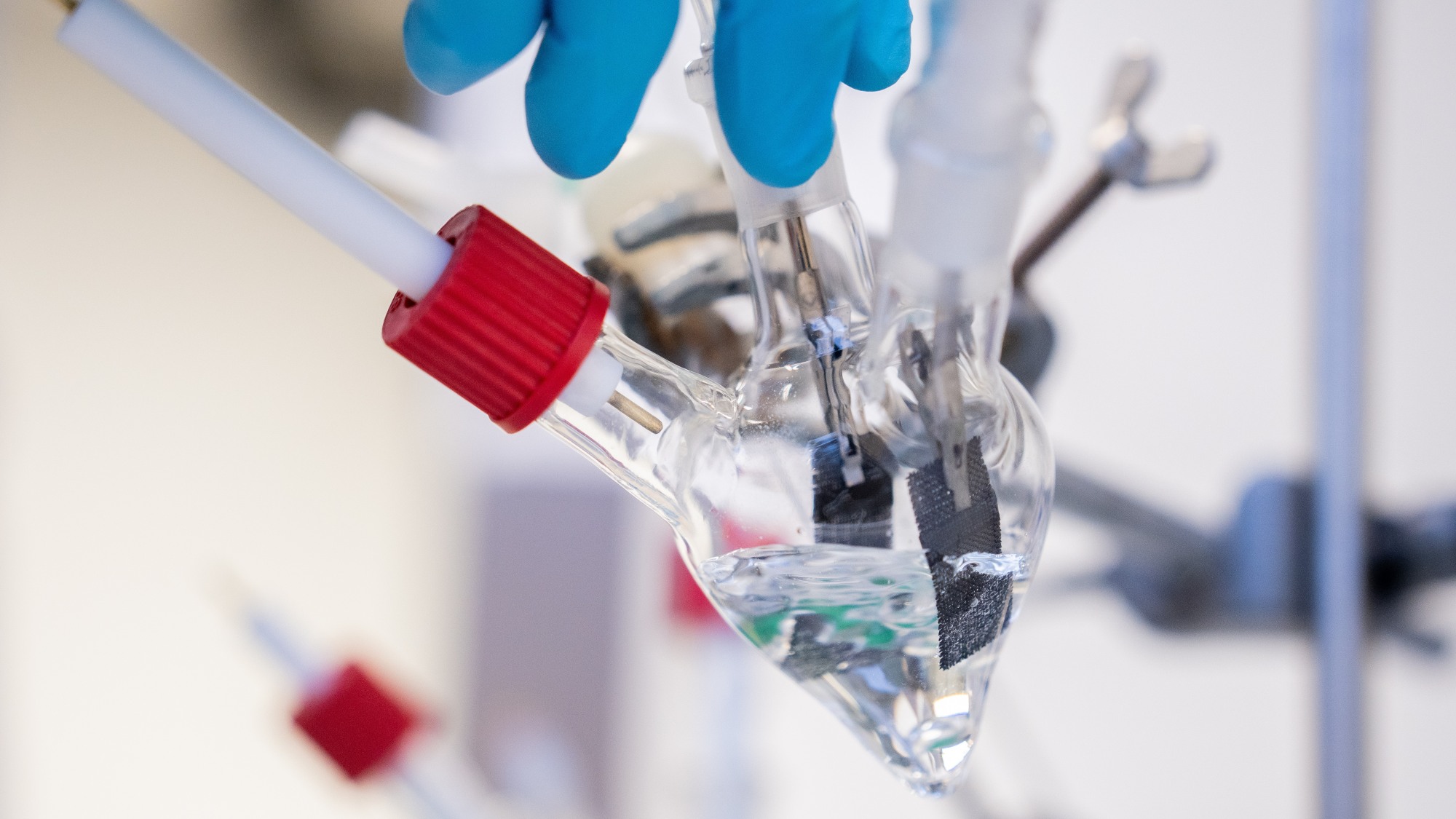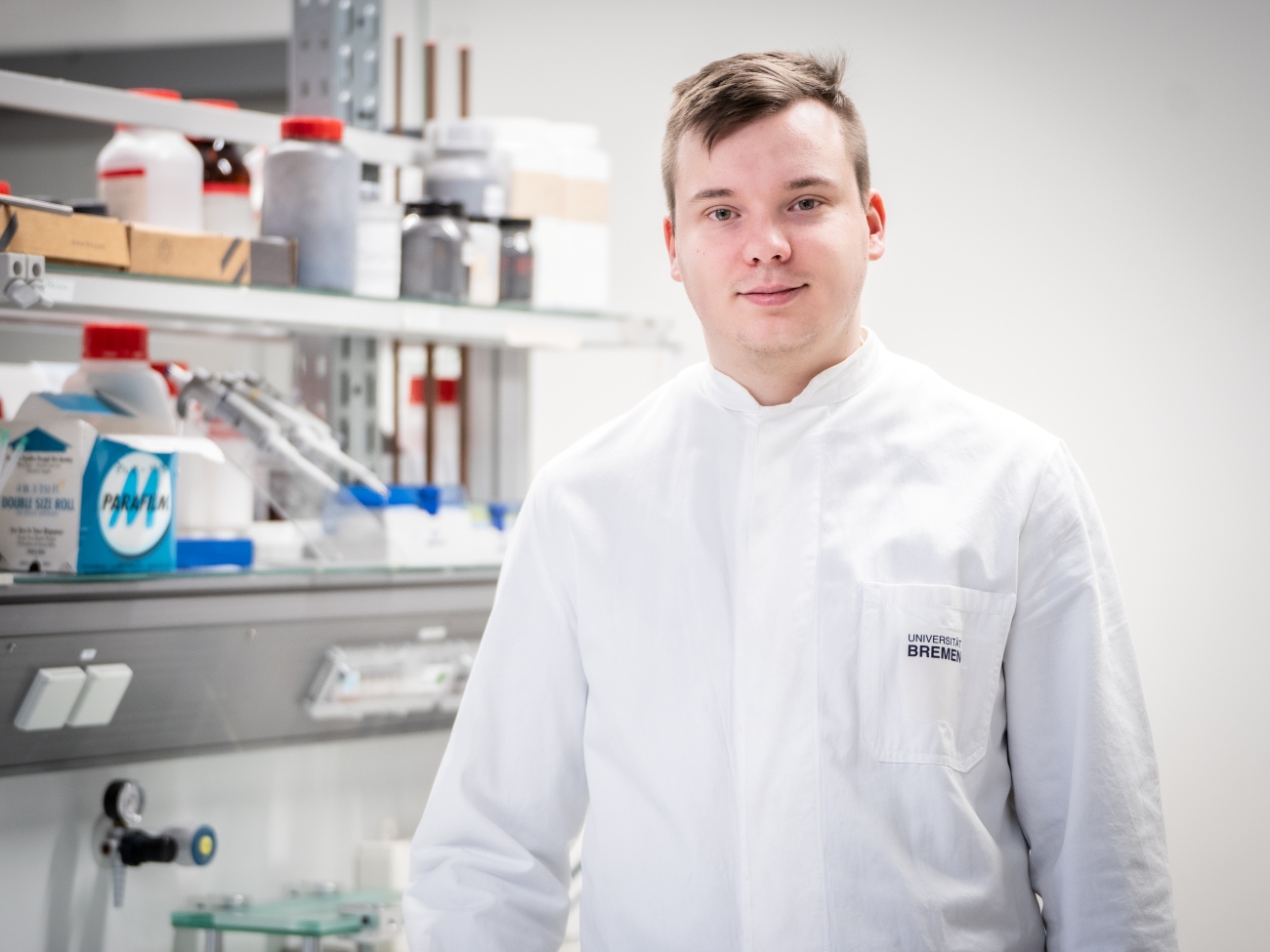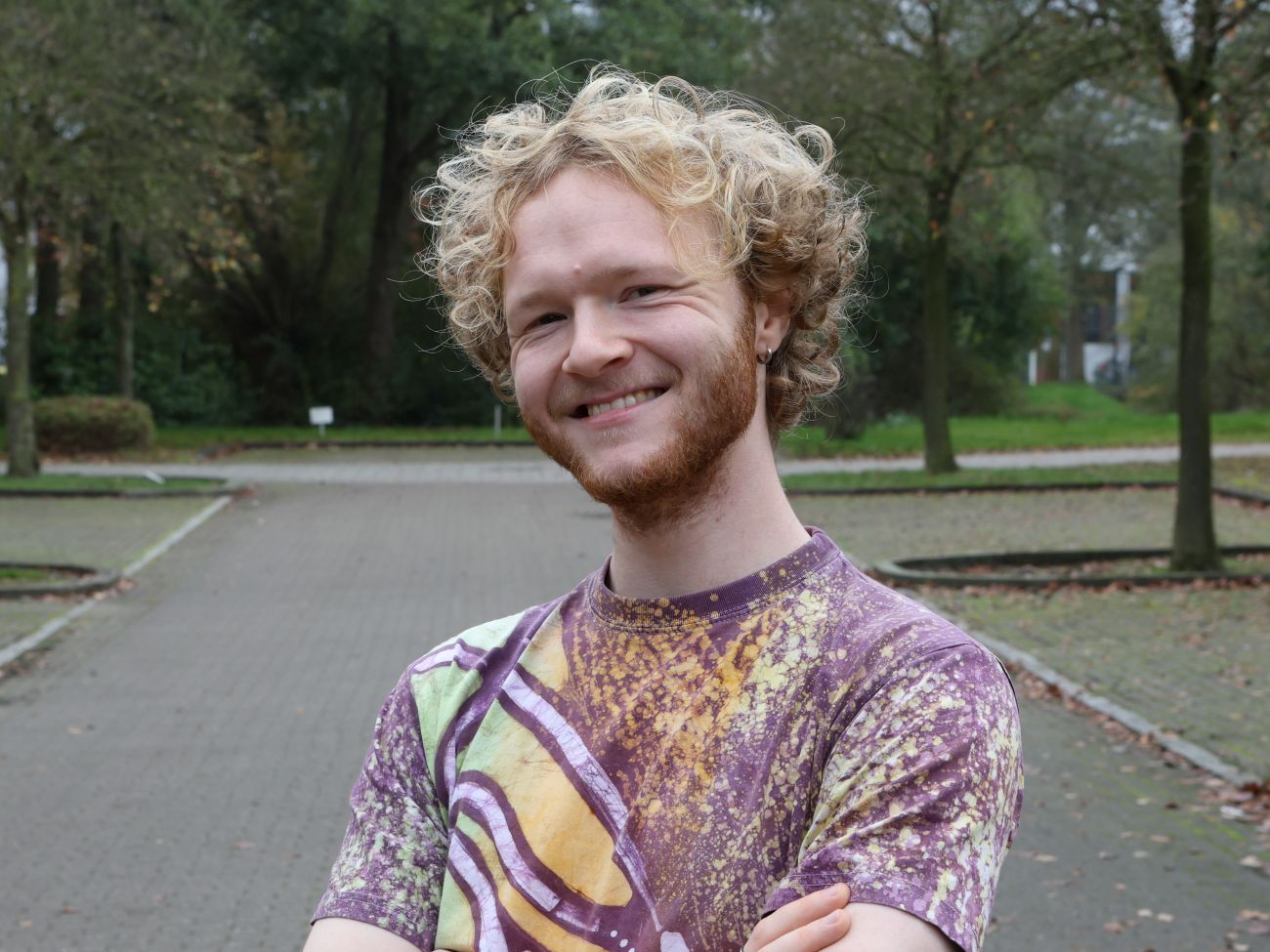
© Annemarie Popp / Universität Bremen
The Future of Technology: Career Paths in 3D Printing and Battery Research
Students Tim Klotz and Kolja Konschak talk about their experiences in the Process-Oriented Materials Research (ProMat) master’s degree program
Tim Klotz and Kolja Konschak are pursuing a degree that follows their passion for innovative materials and processes. The University of Bremen’s very special master’s degree program Process-Oriented Materials Research, or ProMat for short, makes this possible. In the interview, the two students share how individual course schedules, personal mentors, and practical research experiences have shaped their path toward careers in the energy and aerospace sectors.
How did you become interested in processes and materials?
Kolja: I was interested in 3D printing as a hobby and had a 3D printer at home. I enjoyed it so much that I decided to focus on the topic during my master’s degree. This has also allowed me to gain experience with metal 3D printing, which would have been too expensive to pursue on my own. I was interested in the process and the manufacturing techniques involved.
Tim: I was interested in batteries, particularly the role of materials used in these. I wanted to understand the reasons for using, for example, a nickel catalyst instead of platinum. Is there a difference in what they do or just in the name? In addition, I was fascinated by the physics and material science behind it all. And I thought that I could surely find a job working with batteries. Studying this topic would position me well for a career with the energy transition for the next 40 or 50 years.
Kolja: I feel the same way. 3D printing is a very promising production technique. There are still a lot of unanswered questions and that fascinates me. One thing that really sparked my interest was that, until the beginning of last year, metal had not been 3D printed in space at all. Maybe my 10-year-old self is still trying to manifest the dream of becoming an astronaut, but my dream would be to operate a 3D printer on a space station.
Why did you choose to pursue a degree in ProMat?
Kolja:What fascinates me about ProMat is that I have a lot of liberties with selecting topics, but I’m not left to figure everything out on my own. I am particularly glad that I’ve been able to work with a mentor, Vasily Ploshikhin, who is an expert in my field of interest. He has shown a genuine enthusiasm for my topic and worked with me to create a customized curriculum and course schedule that suits my needs. That was incredibly helpful to me because I was unfamiliar with the courses, faculties, and options available here at the university. He also encouraged me to explore the field of simulation, and I have since realized how encompassing and interesting this topic is.
Tim: My experience has been similar to Kolja’s. I am super grateful to my mentor Fabio La Mantia. I sat down with him for a very long time as I was beginning my degree. With over 20 years’ experience working with batteries, his shared expertise was helpful in creating my curriculum. He also offered several new ideas that I hadn’t previously considered, which turned out to be very useful in practical applications. All of this made it much easier to compile my curriculum.

© Annemarie Popp / Universität Bremen
ProMat students often work on a specific research project during their degree – in Bremen or abroad. What was your experience?
Kolja: As a research assistant at ISEMP (Airbus Endowed Chair for Integrative Simulation and Engineering of Materials and Processes), I am currently involved in a project in collaboration with Airbus, which focuses on temperature simulation in processes. Specifically, I am investigating the effects of extreme cooling of pipe systems and the resulting stresses. In a previous project, I examined welding processes with the goal of setting up initial simulations to investigate distortions when the material is heated and then cools down again. I work a lot with the Abaqus software to simulate such processes based on the finite element method. My work on welding processes will likely be continued in a future project, and this laid the groundwork for that project.
Tim: I worked as a research assistant for my mentor until my stay abroad, focusing primarily on cathode materials. This was so much fun for me. At the same time, I also attended an independent study seminar on quantum mechanical modeling by Lucio Colombi Ciacchi. This seminar allowed me to gain additional theoretical knowledge about the cathode materials I was working with, which significantly improved my understanding of their behavior and why a cathode sometimes works well and sometimes doesn’t. Last summer, I spent my time abroad in Oxford, where I worked under the supervision of Mauro Pasta at the Department of Materials. My focus was mainly on metal-zinc batteries, specifically those with organic electrolytes. I had little experience with organic electrolytes or working in gloveboxes at the time, which meant that I learned a lot there.

© Bastian Dincher / Universität Bremen
You are now moving towards completion. What do you plan to do next?
Tim: I would definitely like to do a PhD because I want to work longer on a specific topic. As an undergraduate, I provided a lot of math tutoring, especially for fellow students who were struggling with their final or second to last chance to pass a course. It was always very rewarding to see the light go on when they understood a given topic, and to celebrate their success. I would like to teach a more formal course or lecture at some point, and I am open to various topics, but could also imagine teaching a Python course. I am excited about the prospect of teaching others.
Kolja: While I haven’t yet made my final decision, I am not compelled to pursue a PhD. Instead, I would rather apply my skills in industry, specifically in the field of aerospace engineering with a focus on 3D printing. I could imagine working in a research and development team on exciting and potentially groundbreaking projects. Through my research assistant project, I have already established connections with departments at Airbus, who are located in Bremen and Hamburg. The northern region is home to a thriving aerospace industry.
What would you advise new students in the field of materials research?
Kolja: Don’t hesitate to ask for help when you need it, whether it’s with curriculum planning or navigating exam-related challenges. You’ll likely encounter unexpected challenges as a student, and the path forward may not be straightforward or smooth. The ProMat community and the university in general want to see you succeed and will help you during your academic journey.
Tim: Professors don’t bite. They are usually super nice and approachable. They are also happy to help, especially if you are interested as a student. Enjoy yourselves!
Details of the degree program
The design of the Process-Oriented Materials Research (ProMat) master’s degree program is unique nationwide. It offers an interdisciplinary education in the natural and engineering sciences for the research and development of sustainable materials and processes. The focus lies on modern applications in energy, mobility, and space exploration. ProMat students design their curriculum individually and choose from over 350 courses in all STEM subjects. In addition, they are guided by personal mentors, conduct research on modern topics of their choice, and gain international experience during a research stay abroad. The program was initiated by the MAPEX Center for Materials and Processes and is jointly offered by the Faculties 1 to 5 of the University of Bremen, as well as all materials-oriented external research institutions in Bremen State. Prospective students can apply for summer or winter semester.